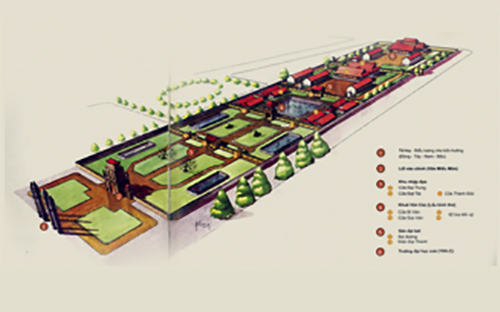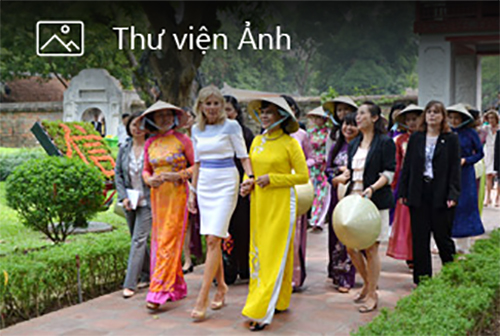Chu Van An – the God of Happiness – in traditional belief.
According to Viet Dictionary by Prof. Hoang Phe, chief editor the phrase “God of Happiness” is explained: “the god always does the best things (a person who does good things will be honoured after death) is dedicated as God of Happiness by villagers”
In historical books, Gods of Happiness honoured by people are heros. They were willing to sacrifice themselves to protect the country and people. In addition, gods of happiness make great contributions to develop the education of the nation such as Ly Dao Thanh under Ly dynasty, Chu Van An under Tran dynasty, and Nguyen Trai under Le dynasty.
The phrase God of Happiness Chu Van An was wrtten in Tối linh từ thực lục. This book is kept at the Institute of Han-Nom Studies and was published in A.1323. The contents of the book is about the admiration of Vietnamese Scholar Chu Van An. The book also illustrates the text of the stele Huỳnh Cung huyện từ bi ký placed at the Temple of Thanh Tri district. The stele contains text praising Chu Van An for his contributions. The author of the text was Dortor Nguyen Cong Thai. He passed the royal exam and received the title Doctor Laureate in 1715. The text showed that God of Happiness Chu Van An has been worshiped at two places:
1. God of Happiness Chu Van An has been worshiped at Huynh Cung village.
Chu Van An opened a school in Huynh Cung village. The ancient geographical books wrote that besides Huynh Cung village, God of Happiness Chu Van An also was worshiped in eight other villages. These villages worshiped Chu Van An at the same Cat temple at Xa Can. And two of Chu Van An’s students have been worshiped there as gods of Happiness.
2. God of Happiness Chu Van An worshiped at Chi Linh
The temple of God of Happiness Chu Van An has been worshiped at Chi Linh district, Hai Duong province.
In the middle of the temple there is a horizontal lacquered board: “God of Happiness of Confucianism in Viet Nam”
In the history of Vietnamese beliefs, individuals who made great contributions to the people and the nation have been dedicated as Gods of Happiness and worshiped at the Communal House. However, it is rare for an individual to be worshiped as God of happiness of Confucianism.
3. God of Happiness of Confucianism
On the text of stele Huỳnh Cung huyện từ bi ký, Dortor Laureate Nguyen Cong Thai wrote about the effects of God of Happiness Chu Van An to develop education and improve the life and wellbeing for people.
In 1370, God of Happiness Chu Van An passed away at the age of 79. King Tran Nghe Tong gave him the posthumous name as Khang Tiet, awarded him the title Văn Trinh Công and ordered him to be honoured in the Temple of Literature. He was honoured in the Temple of Literarure from the Tran dynasty (14th century) to the Le trung hung dynasty (18th century). Since 1837 he has been honoured at the temple till present day. Many villages built temples to worship Chu Van An as God of Happiness.
Author: Prof. Nguyen Ta Nhi (Institute of Han – Nom Studies)
Excerpted from Science Seminar “Chu Van An scholar – Life and career”














 Guide to finding the way
Guide to finding the way
